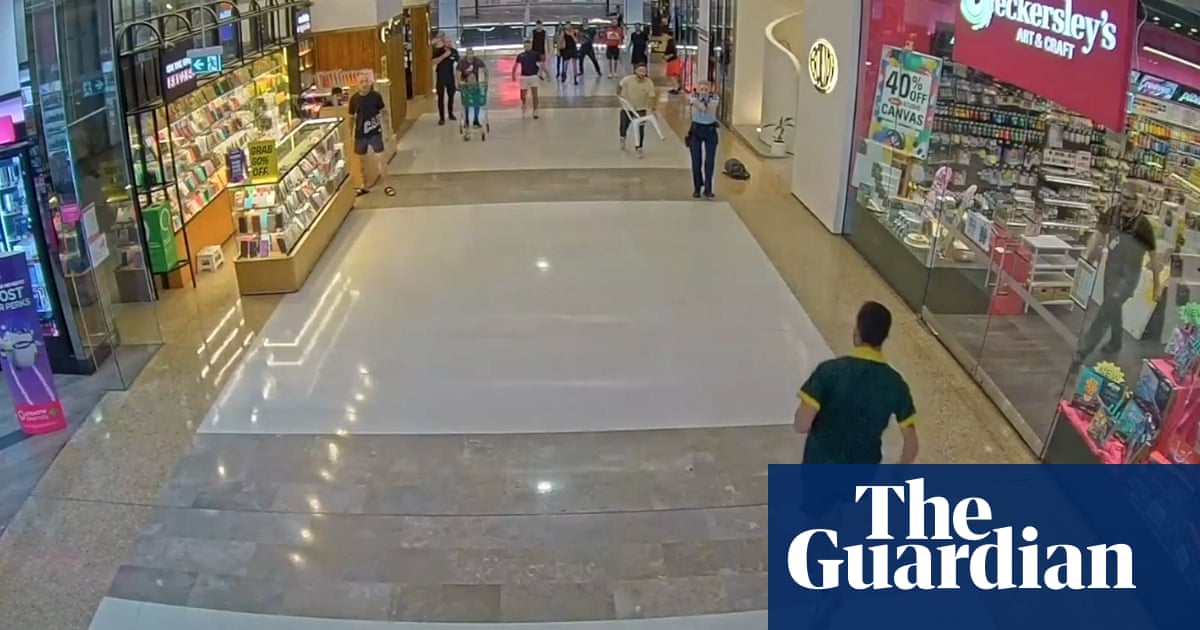A Queensland general practitioner who treated Joel Cauchi for 15 years says he would have been “very concerned” about a possible decline in his schizophrenic patient’s mental health had he been told about concerns raised by his mother.
Dr Richard Grundy told the coronial inquest into seven deaths at a Sydney shopping centre in April 2024 that he last saw Cauchi in Toowoomba in August 2019 – when he had been “reasonably well and stable”.
The doctor said on Thursday that had he later been told that Cauchi’s mother had concerns about changes in his behaviour after coming off antipsychotic medication, he would have been “very concerned” about a possible relapse of Cauchi’s schizophrenia symptoms.
His mother was worried about her son’s belief that he was under Satanic control and Cauchi’s extreme OCD, compulsive use of porn and changes to his gait, the court has heard.
Cauchi, 40, killed Ashlee Good, 38, Jade Young, 47, Yixuan Cheng, 27, Pikria Darchia, 55, Dawn Singleton, 25, and Faraz Tahir, 30, and injured 10 others at Westfield Bondi Junction on 13 April last year, before he was shot and killedby police inspector Amy Scott.
TheNew South Walescoroners court heard that Cauchi left Toowoomba in March 2020. His psychiatrist, known as Dr A for legal reasons, wrote in a discharge letter to Grundy that Cauchi had moved to Brisbane and was no longer eligible for Skype consultations with Dr A.
Under questioning by the senior counsel assisting the coroner, Dr Peggy Dwyer SC, Grundy said he had no reason to suspect that Cauchi needed psychiatric attention, given the letter did not include details about his mother’s concerns or that he had been weaned off antipsychotic medication.
“I thought Joel was well,” Grundy told the court from London via video link.
He said he “didn’t have any information” regarding the phone calls and messages Cauchi’s mother had made to Dr A’s private practice about her concerns on seven occasions between October 2019 and February 2020.
“I would have made an attempt to contact him,” he said, adding that he would have also wanted to discuss the behaviour with Cauchi’s treating psychiatrist.
The wording of Dr A’s letter was ambiguous and one sentence in particular - urging the GP to “recall” Cauchi – could be read in two ways, the court heard.
As such, the GP did not take action and assumed Cauchi did not require his care.
Grundy said that Cauchi had always managed his own appointments and had been a punctual and compliant patient.
Sign up toMorning Mail
Our Australian morning briefing breaks down the key stories of the day, telling you what’s happening and why it matters
after newsletter promotion
“Joel had always been a person who made his own appointments, if he had concerns about any of his health issues ... he would have contacted a GP for assessment and if referral was required, they’d make that referral,” he told the inquest on Thursday.
“He could return to the practice any time he liked. I’ve never recalled or chased someone up who was living in a different city to get them to come back and see me.”
He also said that a phone call Dr A claimed she had made to the GP about Cauchi’s ongoing care “did not happen”.
Dr A told the court on Tuesday that she had felt “totally relieved” after a March 2020 phone conversation in which she and Grundy discussed Cauchi and a possible recall of the patient.
But Grundy said on Thursday there was no such phone call.
“If a specialist had a phone consult with me, I would have opened the patient’s file and made a note of their concerns, and there’s no record of that phone call on file,” he told the inquest, adding he also had no recollection of the call.
Dr A claimed to have called Grundy regarding the health of Cauchi on many occasions. Grundy denied ever being called by Dr A.
